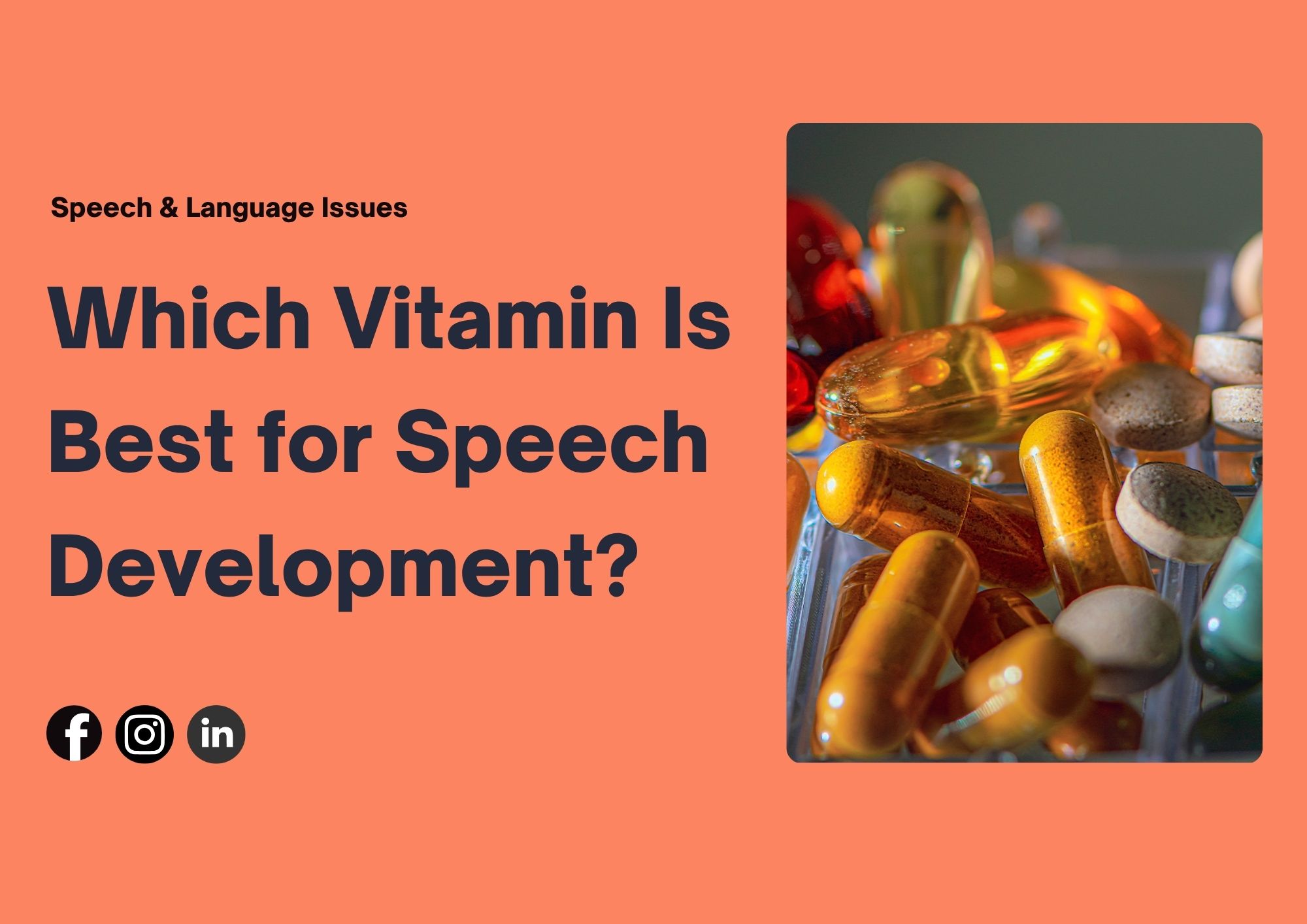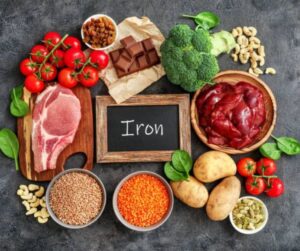
Which Vitamin Is Best for Speech Development?
Let’s talk about what could be missing when words are hard to find. As a parent, it’s normal to worry if your child isn’t talking like other kids. You try to stay calm, search online for milestones, ask family members, and somewhere deep inside, you wonder: “Am I missing something?”
Sometimes, it’s not just a matter of stimulation or screen time. Sometimes, it’s something as simple and quiet as a vitamin deficiency.
We don’t discuss enough how nutrition and speech are linked. But as professionals who’ve helped thousands of families at Neuronurture Kids, we can tell you that what your child eats can definitely impact how and when they speak.
Why Nutrition Matters More Than Most People Think
Think of your child’s brain like a construction site. You’ve got the blueprints (developmental potential), the builders (therapy, play, interactions), but what if the building materials are weak?
That’s what happens when essential vitamins are missing. Your child wants to speak, but their brain may not have the tools to make it happen efficiently.
Let’s break down the four key nutrients that often play a powerful role in speech development.
1. Vitamin B12 and Folinic Acid — The Brain’s Wiring Crew
Vitamin B12 plays a vital role in the development of the nervous system, especially in early childhood. It helps maintain the myelin sheath, which enables nerve signals to travel efficiently. Research published in the Journal of Pediatrics links B12 deficiency to developmental delays, including speech.
Why It Matters:
- Supports myelination (the protective covering around nerves)
- Assists in brain-cell metabolism and communication
- Helps with attention, memory, and expressive language
At Risk:
- Children on vegetarian or vegan diets without supplementation
- Children with gastrointestinal absorption issues, such as celiac disease or IBD
Signs of Deficiency:
- Delayed talking or regression
- Fatigue, low energy
- Poor attention span or memory
Folinic acid (a bioavailable form of folate) is also essential in children with developmental challenges and is linked to improved communication skills, especially in those with folate metabolism issues.

2. Probiotics — The Gut-Brain Conversation
There is growing evidence that gut health is deeply connected to brain function—a relationship known as the gut-brain axis. Children with gastrointestinal discomfort (like constipation) often show irritability, reduced focus, and even delayed speech. This 2010 study details how gut issues affect behavior in children.
Why It Matters:
- The gut microbiome affects neurotransmitter production
- Poor gut health can lead to systemic inflammation that affects brain development
Ways to Improve Gut Health:
- Include fermented foods like curd, dosa, idli, or homemade pickles
- Add fiber-rich fruits like papaya and bananas
- Use pediatric probiotics (after professional guidance)
Constipation in children has also been linked to behavioral problems and poor language development.

3. Omega-3 Fatty Acids — The Brain’s Motor Oil
Omega-3s, particularly DHA (docosahexaenoic acid), are essential for brain growth and function. These fatty acids support the formation of brain cells, gray matter, and synaptic connections—all key to learning and language.
Why It Matters:
- Promotes memory and comprehension
- Aids in speech processing and verbal output
- Supports cognitive flexibility and attention span
Best Sources: Fish (salmon, sardines), flaxseed, walnuts, algae-based DHA supplements (for vegetarians)
Another study supports that Omega-3 supplementation improves expressive language in children with developmental delays.

4. Iron — The Brain’s Oxygen Supply
Iron deficiency can silently impair your child’s learning, memory, and speech. Iron delivers oxygen to the brain, keeping it energized and alert. According to a 2014 review in Pediatrics & Neonatology, low iron levels are strongly associated with developmental delays, including language.
Why It Matters:
- Supports brain metabolism and neurotransmitter synthesis
- Improves focus, emotional regulation, and learning speed
- Low iron has been linked to language and motor delays in toddlers
Children Most at Risk:
- Those who drink large amounts of cow’s milk (>24 oz/day)
- Picky eaters who avoid meats, greens, or legumes
What to Watch For: Pale skin, irritability, low appetite, poor attention or learning delay
The World Health Organization highlights the global impact of iron deficiency on cognitive and motor development in early childhood.

So… Which Vitamin Is “Best” for Speech?
There is no single “miracle” vitamin. Instead, think of speech development as a network of brain systems that rely on a mix of essential nutrients working together.
| Nutrient | Function | Why It Helps |
|---|---|---|
| Vitamin B12 | Supports nerve signaling | Builds language pathways |
| Folinic Acid | Supports DNA & brain cell growth | Essential for cognitive development |
| Probiotics | Regulates inflammation & mood | Balances brain-gut communication |
| Omega-3 | Builds brain structure | Boosts focus, processing, and verbal output |
| Iron | Delivers oxygen to brain | Keeps brain alert and ready for learning |
What Should You Do if You’re Worried?
- Consult a Developmental pediatrician and request basic nutritional tests (including B12, iron, ferritin, vitamin D)
- Review your child’s dietary patterns with a pediatric nutritionist
- Begin home-based strategies to promote speech (e.g., parent-led therapy, reading aloud, limiting screen time)
How Neuronurture Kids Can Help
- Consultation with Developmental Paediatrician
- Family coaching to improve home routines and nutrition
You can also find checklists and practical parenting tools in our Resource Library, designed to support every step of your child’s development.
Book a Free 10-Minute Call with Our Experts
We’ll listen, ask the right questions, and guide you on what to do next.
Click to BookWhatsApp: +91 74117 49796
Explore More Resources
Browse through our Parent Resource Library for expert tips, checklists, and helpful articles.
Final Thoughts from One Parent to Another
Nutrition isn’t a magic fix. But when done right—when you look at the whole child—the change is real.
Maybe it’s a little more energy. Maybe more focus. Maybe, finally, a new word you’ve been waiting for.
You’re not alone in this. We’re here, and we’re cheering for your child to find their voice—loud, clear, and full of personality.